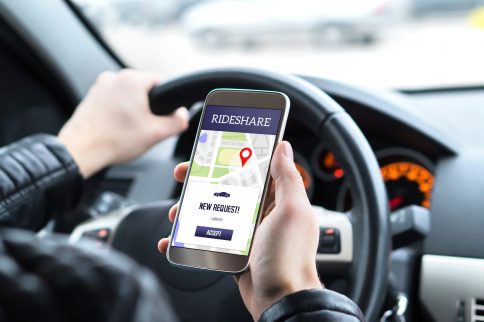By Lori Straus
In 2015, a Toronto Uber driver got into an accident. Thankfully, no one was hurt. Because the other driver was at fault, their personal car insurance paid. However, the Uber driver wondered what he would do if he ever needed to make an insurance claim while working. In this blog post, I’ll cover the basics of ridesharing insurance.
Ridesharing = Small Business
If you earn money ridesharing for companies like Uber, Lyft, ecoRIDES, DriveHER, RideCo, Facedrive, or Uride, you’re running a business. That means your personal auto insurance won’t cover you.
At the time of the above story, only costly commercial insurance—the kind cab drivers pay—was available. Ontario didn’t start offering ridesharing insurance until 2016. Now, several ridesharing companies offer insurance, but through only one carrier each. For example, only Intact provides insurance to Uber drivers. Aviva, Lyft drivers. So you can’t shop around for better rates.
Also inform your personal auto insurance carrier about your ridesharing. They will need to know.
When Does Ridesharing Coverage Begin and End?
Because you’re using your personal vehicle for commercial purposes, you need to know which insurance carrier is “in charge” when. Generally speaking, the FSRA says that all passengers, vehicle owners, and drivers are covered by ridesharing insurance from the moment the ridesharing app is turned on to when passengers exit the vehicle.
However, insurance is never crystal clear. The FSRA also writes, “A number of variables can impact the insurer to which you should send your claim.” Therefore, understand your insurance coverage options before you make a claim. Carefully review the information provided by your ridesharing company, their insurer, and your personal auto insurance policy. The FSRA also suggests getting legal advice if anyone was injured in the accident.
Ridesharing Is Not Carsharing
With all the new cloud-based lingo these days, words can become confusing. Ridesharing means sharing one single ride. Carsharing means sharing a vehicle. If you drive for Uber, Lyft, or similar companies, you are sharing rides. If you borrow a car from an organization, often a co-op, you are sharing that car with others who will borrow it later. Insurance coverage is different for each situation.
Get Insured
Read all the fine print before you sign up with a ridesharing company. Insurance for ridsharing has come a long way. However, it won’t always be clear when you can use it. What is clear, though, is that you need it. You are running a business, so think like a business owner. Insure yourself during your ridesharing activities. Otherwise, your side income may become an additional debt.


